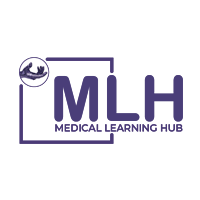Session Overview: Dr Harsha Sasi, from Viatris welcomed Dr. K T Shenoy and Dr. Anand Kulkarni along with all the participants.
Module 1 : Treatment strategies for CHB and CHC in special populations/ coinfections : Dr Anand V Kulkarni, Director - Critical Care Hepatology & Senior Consultant Hepatologist at The Asian Institute of Gastroenterology discussed about:
- Initial Workup: Test for HBV DNA, ALT, HBeAg, and liver fibrosis (elastography).
- High-Risk Groups:
- Family history of HCC/cirrhosis
- Coinfections (HIV, HCV, HDV)
- Immunosuppressed patients
- Pregnant women (HBV DNA >200,000 IU/mL) - Treat regardless of ALT if:
- Cirrhosis (compensated/decompensated)
- Extrahepatic manifestations (e.g., vasculitis, glomerulonephritis)
- Age >30 + HBV DNA ≥2000 IU/mL HBeAg-negative: Treat if HBV DNA >2000 IU/mL + ALT >ULN or qHBsAg >1000 IU/mL.
Pregnancy: TDF at 24-32 weeks if HBV DNA >200,000 IU/mL (prevents MTCT).
Module 2 : Management Challenges and Therapies in Hepatocellular Carcinoma and Refractory Ascites :Dr. Kotacherry Trivikrama Shenoy, Professor and Head, Department of Gastroenterology at Sree Gokulam Medical College and Research Foundation, Trivandrum. discussed about:
Ascites unresponsive to diuretics or causing complications (e.g., renal dysfunction, hyponatremia).
Two types: diuretic-resistant (no response) and diuretic-intractable (side effects prevent use).
First-line: Large-volume paracentesis (LVP) with albumin infusion (6–8 g per liter removed).
Other options:
- TIPS (Transjugular Intrahepatic Portosystemic Shunt): For recurrent ascites (but risk of hepatic encephalopathy).
- Midodrine: Improves blood pressure and renal perfusion.
- Liver transplant: Best long-term solution (high mortality without it)
Hepatocellular Carcinoma (HCC) 6th most common cancer globally; high mortality (5-year survival ~10%).
Strongly linked to cirrhosis (80–90% of cases).
Rising incidence due to HBV, HCV, alcohol, and metabolic liver disease.
Imaging: Triphasic CT/MRI showing arterial hypervascularity + venous/delayed washout.
Biomarkers: AFP (>200 ng/mL is highly suggestive but not always reliable).
Biopsy: Needed if imaging is inconclusive.
Early stage (A): Curative options (resection, transplant, ablation).
Intermediate (B): TACE (transarterial chemoembolization).
Advanced (C): Systemic therapy (sorafenib, lenvatinib, immunotherapy).
Terminal (D): Palliative care.
Immunotherapy: Atezolizumab + bevacizumab (1st-line for advanced HCC).
Combination therapies: TACE + sorafenib, durvalumab + tremelimumab.
Liver transplant: Best for early HCC (Milan criteria: single ≤5 cm or ≤3 nodules ≤3 cm).
High-risk patients (cirrhosis, HBV/HCV): Ultrasound every 6 months.
Q&A and Panel Discussion: Dr. Shenoy and Dr. Anand Kulkarni addressed case study questions and engaged in discussions with participants after each speaker session.
We wish you a great learning experience !
We thank Mylan Pharmaceuticals Private Limited, a Viatris Company for supporting us in the webinar.
Sr. No. | Topic | Faculty | Time |
1 | Welcome address and introduction | Viatris/MLH | 5 Mins |
2 | Management Challenges and Therapies in Hepatocellular Carcinoma and Refractory Ascites | Dr K T Shenoy | 35 Mins |
3 | Treatment strategies for CHB and CHC in special populations/ coinfections (TB/ HIV/ On immunosuppressants, steroids, Patients receiving Chemotherapy, Biologicals, CKD)- | Dr Anand Kulkarni | 35 Mins |
4 | Question and Answer, Panel discussion | Dr K T Shenoy Dr Anand Kulkarni | 20 Mins |
5 | Vote of thanks | Viatris/MLH | 5 Mins |
- General Practitioners
- Junior Hepatologists
- Gastroenterologists

